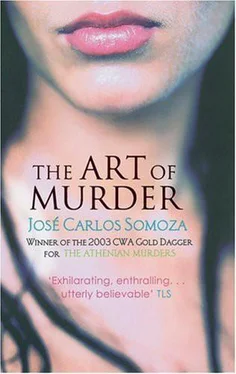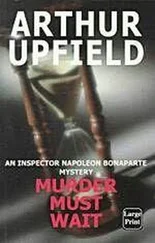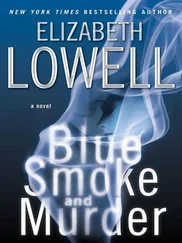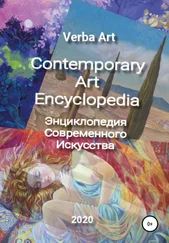Jose Somoza - Art of Murder
Здесь есть возможность читать онлайн «Jose Somoza - Art of Murder» весь текст электронной книги совершенно бесплатно (целиком полную версию без сокращений). В некоторых случаях можно слушать аудио, скачать через торрент в формате fb2 и присутствует краткое содержание. Жанр: Триллер, на английском языке. Описание произведения, (предисловие) а так же отзывы посетителей доступны на портале библиотеки ЛибКат.
- Название:Art of Murder
- Автор:
- Жанр:
- Год:неизвестен
- ISBN:нет данных
- Рейтинг книги:4 / 5. Голосов: 1
-
Избранное:Добавить в избранное
- Отзывы:
-
Ваша оценка:
- 80
- 1
- 2
- 3
- 4
- 5
Art of Murder: краткое содержание, описание и аннотация
Предлагаем к чтению аннотацию, описание, краткое содержание или предисловие (зависит от того, что написал сам автор книги «Art of Murder»). Если вы не нашли необходимую информацию о книге — напишите в комментариях, мы постараемся отыскать её.
Art of Murder — читать онлайн бесплатно полную книгу (весь текст) целиком
Ниже представлен текст книги, разбитый по страницам. Система сохранения места последней прочитанной страницы, позволяет с удобством читать онлайн бесплатно книгу «Art of Murder», без необходимости каждый раз заново искать на чём Вы остановились. Поставьте закладку, и сможете в любой момент перейти на страницу, на которой закончили чтение.
Интервал:
Закладка:
Van Obber opened his mouth to laugh, and Bosch could see his stained teeth. 'People might ask: "How can the same canvas be painted as a Succubus by Van Obber and a Virgin by Ferrucioli?" The answer is a simple one: that's art, ladies and gentlemen. That is precisely what art is, ladies and gentlemen.' He fell silent, then after a while added:
'Postumo is not mad, but he's not sane either. He's neither evil nor good, man or woman. Do you want to know what Postumo is? He's whatever the painter paints on him. Postumo's eyes are emph’. I asked them for emotion, and they gave it me: anger, fear, rancour, jealousy
… but then, once work was over, their light went out, they emptied
… Postumo's eyes are as empty and colourless as mirrors… Empty, colourless, as beautiful as…'
His words broke off in dreadful sobbing. In the ensuing silence, several thunderclaps could be heard. It was starting to rain over Delft.
Bosch felt sorry for Van Obber and his shattered nerves. He supposed solitude and failure made for poor companions. 'Where do you think Baldi might be now?' he asked gently. 'I don't know,' Van Obber shook his head. 'I don't know.'
'As far as I know, he abandoned a portrait you made of him for a French art dealer, Jenny Thoureau, in 2004. Was that typical of Baldi? To leave a work in the lurch before the date stipulated in the contract?' 'No. Baldi fulfilled all his contracts.' 'Why do you think it was different this time?'
Van Obber raised his head to look at him. His eyes were still glistening, but he had regained his calm.
'I'll tell you why,' he murmured. 'He got a more interesting offer. That's all there is to it.' 'Are you sure of that?'
'No. It's just a suspicion. I haven't seen him again, or heard any more about him. But I repeat – the only thing that interested Baldi was money. If he quit one work, it was because they offered him a better one. I'm sure of that.' 'An offer to be another painting?'
'Yes. That's why he left. Naturally, I wasn't surprised: I was a loser, and Baldi was too good for me. He was destined for something much better than to be a Van Obber painting.' Bosch thought this over for a minute.
'That happened two years ago,' he said eventually. 'If Baldi walked out to become another work, as you say, where is that painting now? Since the Jenny Thoureau portrait his name hasn't been seen anywhere…'
Van Obber said nothing. This time it did not seem his mind had strayed off into distant recesses: it was more as if he were considering what to say.
'He's not finished,' he said all of a sudden. 'What?' 'If he hasn't appeared, it's because he's not finished. It's logical.'
Bosch thought about what Van Obber had said. An unfinished painting. That was a possibility neither he nor Miss Wood had thought of. They were following two trails in their search for the Ardst: either he was still working, or he had left the profession. But until now neither of them had even considered he might be working in a painting that was not yet finished. That would explain Ms disappearance and his silence. A painter never shows his work until it is complete. But who could be devoting so much time to painting Baldi? And what kind of artwork were they trying to create?
As Bosch was leaving, he heard Van Obber's voice again from the armchair.
'Why do they want to find Postumo?' ‘I don't know,' Bosch lied. 'My job is just to find him.'
'Believe me, it's better for everyone that Postumo has got lost. Postumo is more than a simple work of art: he is art, Mr Bosch. Art. Pure and simple.'
He stared up at Bosch with his exorbitant, sick eyes and added:
'Which means that, if you find him, be careful. Art is more terrible than man.'
When Bosch left Van Obber's house, a grey, ceaseless rain covered the city. Delft's beauty was melting in front of his eyes. He wished with all his heart that Rip van Winkle had really arrested the Artist, but he knew they had not. He was convinced that, whether or not it was Postumo, the criminal was still on the loose and was ready to spring into action during the exhibition.
8
The Artist went out into the street at night.
It was raining in Amsterdam, and the weather was on the cold side. Summer had been put into abeyance. All the better, he thought. Hands in pockets, he walked under the distant light from the streetlamps, letting the rain cover him with a fine spray like a flower. He crossed the Singelgracht bridge, where the lights were making garlands in the water and the drops of rain were tracing concentric circles, and walked on until he reached the Museumplein. He strolled past the area containing the silent Rembrandt Tunnel. The police guarding the entrance glanced at him without paying any particular attention. He looked like a perfectly ordinary individual, and that was how he acted. He could be a man or a woman. In Munich he had been Brenda and Weiss; in Vienna, Ludmila and Diaz. Only on the inside was he a single person. He reached the far end of the horseshoe and continued on his way. He reached Concertgebouw square, where the most important concert hall in Amsterdam stood. But now the music had finished, and everything lay silent. The Artist did not cross Van Baerlestraat. Instead, he turned right towards the Stedelijk, and began his return journey towards the Rijksmuseum. He wanted to explore and check everything. His progress was blocked by metal fences marking out an area reserved for van parking. He leaned on one of the fences and stared into the night.
A small 'Rembrandt' poster was tied to a lamppost a little further on. The Artist stared at it through the drizzle. The Angel's hand was opening in the darkness. He read the date on it: 15 July 2006. The next day. The fifteenth of July. Exactly. Tomorrow will be the day.
He moved away from the fence, turned down Van de Veldestraat and walked on. The rain eased off as he made his way back to the Singel.
Tomorrow, in the exhibition.
Everything around him was dark and unlovely. Only the Artist looked like pure beauty.
Fourth Step
I am not concerned about exhibition.
BRUNO VAN TYSCH Treatise on Hyperdramatic Art
'I should win easy', said the Lion.
The Eighth Square, at last!
LEWIS CARROLL Through the Looking Glass
09.25.
When Lothar Bosch awoke, Postumo Baldi was in his bedroom.
He was standing three metres from his bed, looking at him. The first thing Bosch thought was that he did not seem particularly dangerous. He's not dangerous, he told himself. The second thing he realised, with precise, terrible intuition, was that this was not a dream: he was wide awake, it was daytime, it was his house on Van Eeghenstraat, and Baldi was in his bedroom, naked, staring at him thoughtfully. His appearance was that of a skinny adolescent with protruding bones, but his gaze was full of beauty. Despite everything, Bosch was not afraid of him. I can overcome him, he thought.
At that point, Baldi began a graceful, silent dance, a whirlwind of light. His thin body danced all round the room, then returned to its initial position, and the world seemed to come to a halt with him. Then he started to move again. And stopped a second time. Fascinated, it took Bosch some time to realise what was going on: he had fallen asleep with the virtual reality visor on while watching the 3-D images the Foundation had taken of Baldi when he was fifteen years old.
Bosch swore, switched off the machine and took off the visor. The bedroom looked empty, but Baldi's iridescent after-image still floated in the air. The brightness outside the window was that of a rainy day: the day the 'Rembrandt' exhibition was to open.
The images had not helped Bosch clarify things a lot. Van Obber had not been exaggerating when he had said Postumo was 'fresh clay': a hairless, smooth creature, a beginning, a human point of departure, the start of all shapes.
Читать дальшеИнтервал:
Закладка:
Похожие книги на «Art of Murder»
Представляем Вашему вниманию похожие книги на «Art of Murder» списком для выбора. Мы отобрали схожую по названию и смыслу литературу в надежде предоставить читателям больше вариантов отыскать новые, интересные, ещё непрочитанные произведения.
Обсуждение, отзывы о книге «Art of Murder» и просто собственные мнения читателей. Оставьте ваши комментарии, напишите, что Вы думаете о произведении, его смысле или главных героях. Укажите что конкретно понравилось, а что нет, и почему Вы так считаете.












